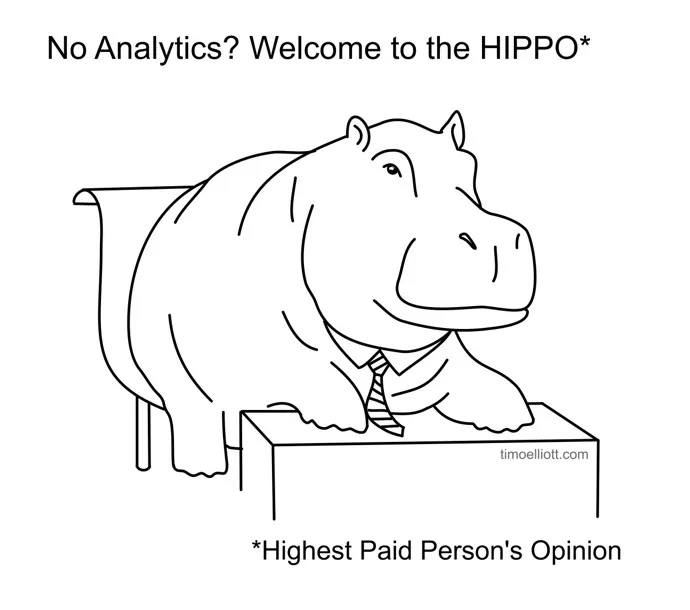Strong Opinions, Loosely Held - Part 2
A while ago I talked about Strong Opinions, Loosely Held. I talked about the problem with people with structural power (the HiPPO) having strong opinions and how those opinions often get too much weight.

The HiPPO Timo Elliott
As Jim Barksdale of Netscape once said,
“If we have data, let’s look at data. If all we have are opinions, let’s go with mine.”
Doing that can easily get you into trouble, because being a HiPPO doesn’t make it right. In that post I only teased about the second part, so it’s time to talk about that.
After making sure other opinions get sufficient space to be investigated and thought about, the most important thing you can do with your strong opinions is to hold on loosely, but don’t let go to soon. You have that opinion for a reason. It might be a good one. It’s probably based on some experience you had or data you’ve seen.
But that doesn’t mean that it’s still the right opinion. You need to make sure that it’s still the right opinion. You need to check your biases.
Like confirmation bias, where you only look at data that supports your opinion. You need to look at that data, but you also need to look at contrary data. Especially when it’s brought by someone with a different opinion.
Or recency bias. Something like this just happened, so obviously it’s going to be like that next time, right. Possibly, but not definitely. Maybe what just happened was a black swan event. Or the circumstances were different.
Optimism bias is another one. Sure, it didn’t work last time, but we’ve learned a lot and we can be better/faster/stronger than last time. We can make it work now. Maybe, but maybe not. You need to be honest with yourself about your capabilities.
Ego bias is a big one. Especially for HiPPOs. After all, if they’re the highest paid, they must be the smartest/most valuable/most correct, so their opinion must be the best. That might be true for some set of conditions/areas, but no single person is the smartest in the room at everything. Again, honesty is the antidote to bias.
There are many other biases and reasons why your opinion might be wrong. The trick is to not be so tied to your opinions that you’re not able to listen to reason. To listen to another opinion.
Indecision can cripple a project/team. But so can slavish devotion to an opinion that has been proven to be incorrect. So have a strong opinion. Present it with confidence. But don’t force it on others. Encourage a discussion. And when you learn new facts of and you see that your opinion is not helping you, allow yourself to change your opinion.
Then work from that opinion/decision. Until there’s a good reason to change it.
